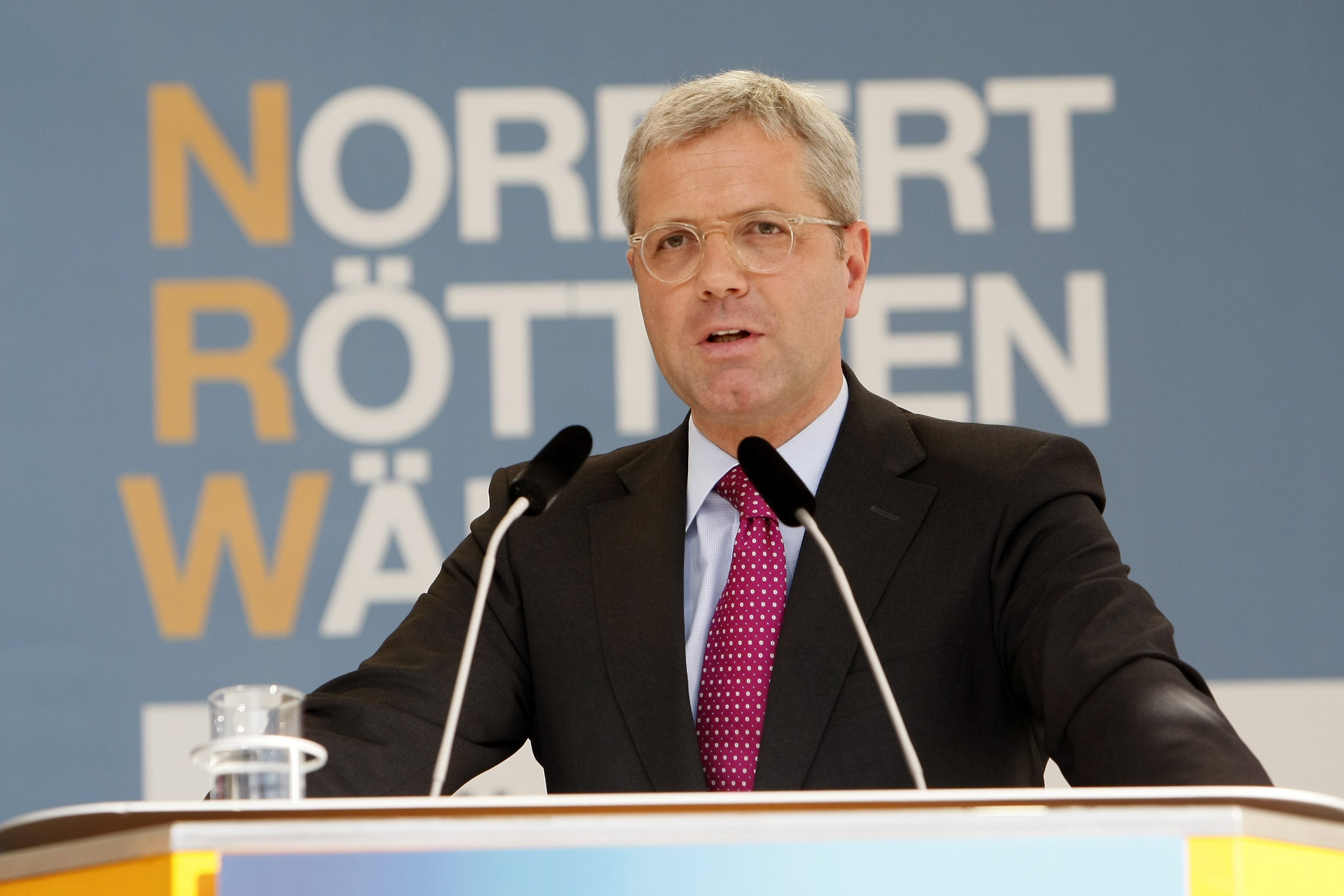“Zeitenwende”: A Turning Point for German Policy Toward China?
A review of Norbert Röttgen, “Never Again Helpless! A Manifesto in Times of War” (published in German under the title “Nie wieder hilflos! Ein Manifest in Zeiten des Krieges”) (dtv, 2022).

Published by The Lawfare Institute
in Cooperation With

A review of Norbert Röttgen, “Never Again Helpless! A Manifesto in Times of War” (published in German under the title “Nie wieder hilflos! Ein Manifest in Zeiten des Krieges”) (dtv, 2022).
***
“The unimaginable has happened: war has returned to Europe.” These are the opening lines of a new book by Norbert Röttgen, a German parliamentarian and one of Germany’s most outspoken politicians on foreign policy. Three months after Russia’s Feb. 24 attack on Ukraine, he released “Never Again Helpless! A Manifesto in Times of War.” Written with a powerful sense of urgency, Röttgen attempts to forge a path forward for Germany after many years of negligent foreign policy making.
The book comes on the heels of a speech by Chancellor Olaf Scholz, in which the German leader declared that the invasion of Ukraine will set in motion a “Zeitenwende” or paradigm shift for German foreign policy. What this Zeitenwende exactly means and how substantive those changes will be is still uncertain. The question on many policymakers’ minds in the U.S. is, has Germany woken up to the China challenge? And what does the invasion of Ukraine and Zeitenwende mean for Germany’s China policy? The Biden administration is currently building a system of alliances and partners that can act together with shared purpose on issues related to China. To what extent Germany will be a ready player in this system depends on the influence in Berlin of people like Norbert Röttgen—and his new book.
Röttgen is blunt. Berlin did not expect the invasion of Ukraine. Germany, he says, was “helpless” in the face of Russian aggression. What should the country do now? While his book begins with the invasion of Ukraine, it moves quickly to draw clear-eyed conclusions on Germany’s partnership with the United States, the urgency of climate change, German energy security, and a challenge further afield from Europe’s physical borders—China and a potential conflict in the South China Sea.
As a long-standing member of the German Bundestag’s foreign affairs committee, Röttgen forged a reputation as a critic of Germany’s accommodating foreign policy toward authoritarian countries such as Russia and China. On Russia, for example, he was an early critic of the Nord Stream 2 pipeline that facilitated greater German energy dependence on Russia. When Angela Merkel was still chancellor, he criticized her accommodating politics toward China, despite being in the same party, the conservative Christian Democratic Union (CDU), the party in power at the time. He challenged Merkel’s relatively open approach to Huawei 5G technology in Germany’s telecommunications infrastructure. In the wake of Beijing’s repression in Hong Kong, he condemned Berlin’s soft messaging and restrained policy.
Röttgen’s views on China captured in this book will be well received by the Washington, D.C., foreign policy establishment. In fact, if U.S. Secretary of State Antony Blinken and Norbert Röttgen were sitting together in a conference room chatting about China, they would likely finish each other’s sentences. In his book, Röttgen writes, “China has the will and the capabilities to fundamentally change the international order and with it the world in which we live.” This May, Blinken gave a speech on the Biden administration’s position on China, reflecting a similar understanding to Röttgen’s: “China is the only country with both the intent to reshape the international order and, increasingly, the economic, diplomatic, military, and technological power to do it.” The enormity of the China challenge is clear to both men.
Röttgen rightly argues that when it comes to China, Germany’s own role is too big to ignore. “Whether China succeeds in placing a wedge between Europeans, and between Europe and the United States, again depends a great deal on Germany.” Cooperation with the United States is crucial, but Röttgen warns that the presidency of Donald Trump has made America a less reliable partner. As it focuses on domestic projects such as infrastructure and policy toward China, the Biden administration’s energies will be diverted away from Europe, Röttgen warns his German readers. There are several moments of gentle admonishment of the United States in this book. Röttgen says that Germany does not want a “cold war” with China, and Germany needs to regularly remind the U.S. of that. That bit probably serves less as a critique of U.S. foreign policy than as a subtle signal that even a very trans-Atlantically disposed Germany could be pushed only so far.
The limits of Germany’s ability to take more drastic action on China generated significant debate this summer. After Nancy Pelosi’s visit to Taiwan, a visit Röttgen dismissed as a fruitless provocation, he condemned Germany’s economic dependence on China and the limits it places on German maneuverability. The war in Ukraine triggered sky-high energy prices in Germany that threaten to erode the population’s support for sanctions on Russia. When asked in an interview on German-public broadcaster ZDF whether Germany “could afford to” impose sanctions on China in the case of a Chinese attack on Taiwan, he answered: “At the moment, basically not.” In the interview, he said that “growth in China is being made into a weapon,” much like energy dependence on Russia had been made into a weapon. “We can no longer conduct trade policy without geostrategic considerations. We Germans need to learn that.”
Dependence on the Chinese market is a source of significant debate in Germany, including what that dependency looks like exactly. A recent report by Rhodium Group presented trends in foreign direct investment into China that indicate that dependency on China is increasingly concentrated in a small number of very big German companies. Big German players primarily in the automotive and chemicals industries are proceeding with big ticket investments in China. At the same time, other, often smaller, players are holding back. In his book, Röttgen refers to this dependence of key German industries on China as posing a “risk of infection” for the remainder of the German economy.
Any German response to China should be part of a collective “China-strategy of the West,” Röttgen writes. This strategy needs to be based on two broad premises. The first premise is that the strategy of containment used to deal with the Soviet Union will not work for China. The second is that the future of the international order will be determined by those who shape the rules and norms. “There is no doubt,” he writes, that “whoever dominates in the key technologies of the future will also control the international system of norms.”
A European contribution to this future of international norms are regulations and projects that accomplish European digital sovereignty. That means Europe wants to assert itself in a way that is independent from not only China but also the United States. European and American approaches to data privacy, competition laws as they apply to tech firms, and regulation of artificial intelligence are not terribly in sync. Röttgen welcomes the EU-U.S. Trade and Technology Council, which is aimed at trying to get American and European perspectives to converge.
Germany is currently drafting a China strategy, and very little of what it will contain is publicly known. However, a trend line toward a more assertive position is becoming evident. Prime Minister Scholz has been hesitant to make dramatic changes in Germany’s approach to China. However, Foreign Minister Annalena Baerbock and other officials from Scholz’s Green and Free Democratic Party coalition partners are slowly pushing the current German government toward a new cautiously assertive course on China.
Röttgen challenged the prevailing views on China in Germany at a time when the German government was not terribly receptive to such criticism. Berlin is now more open than ever to the direction he has been pointing to for some time—a view closer to the one held in Washington, D.C. To what extent the U.S. and Germany will be able to forge a common approach to China remains to be seen. However, voices like Röttgen’s will likely play an important role in shaping it.



